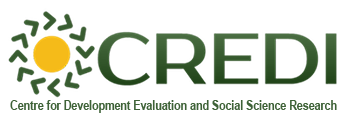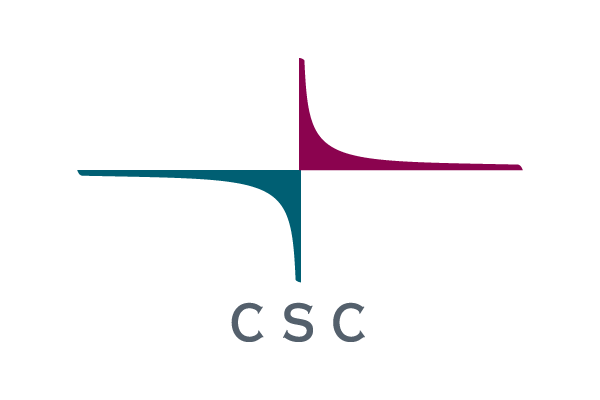“We must respond decisively, innovatively and together to suppress the spread of the virus and address the socio-economic devastation that COVID-19 is causing in all regions.”
UN Secretary-General António Guterres. Statement issued 31 March 2020
Reacting to the COVID-19 emergency presents the scientific community with a unique opportunity to exploit the power of data across domains and several FAIRsFAIR partners are playing a strategic role.
The fast-track Working Group on COVID set-up on 30 March 2020 by the Research Data Alliance for example, is developing detailed guidelines for FAIR data sharing to support scientific research and policy making in public health, with their outputs to be released on 24 April and integrated with allied efforts. These include the OECD use of Open Government Data (OGD) in response to the COVID-19 outbreak, the CODATA ‘Making Data Work for Cross-Domain Grand Challenges’ for launch in 2021 and the Virus Outbreak Data Network (VODAN) launched by the GO FAIR Foundation. The purpose of the latter is to make data accessible for machine learning algorithms, enabling pattern recognition, and thereby contributing to research on new interventions against COVID-19. “The next step of this initiative will be to build a conceptual model for future outbreaks” says Bert Meerman, Director GO FAIR Foundation.
FAIRsFAIR supported repositories are also doing significant work. We surveyed them to understand how they were contributing to COVID-19 research, how such involvement would affect their activities in the short or long term, and how the support from FAIRsFAIR could benefit their activities.
Climate data
Clear skies over many large cities in China and elsewhere are witness to the improvement in air quality resulting from a lowering of carbon emissions during the COVID-19 lockdown with its associated travel restrictions.
 The ICOS Carbon Portal (www.icos-cp.eu) supports carbon cycle research by providing observations that underpin our knowledge of the Earth’s climate system and how human land use and emissions affect the greenhouse gas budget. Director Alex Vermeulen says the COVID-19 emergency offers a unique opportunity to study how planned CO2 emissions reductions (30-40% by 2030 and 70% by 2040) will affect atmospheric conditions. He explains, “Our FAIR data repository disseminates all our observations through linked open data in near real time, automatically quality controlled by the ICOS Atmosphere Thematic Centre using strong persistent identification and a clear open data licence. This allows for transparent and reproducible workflows, so that any researcher in the world can use and check our results and can cooperate with our community to achieve the best possible analysis of our data.” With support from FAIRsFAIR, ICOS hopes to certify its data portal with the CoreTrustSeal certificate by the end of 2020. Their Near Real-Time data products for carbon dioxide and methane can be previewed and downloaded here.
The ICOS Carbon Portal (www.icos-cp.eu) supports carbon cycle research by providing observations that underpin our knowledge of the Earth’s climate system and how human land use and emissions affect the greenhouse gas budget. Director Alex Vermeulen says the COVID-19 emergency offers a unique opportunity to study how planned CO2 emissions reductions (30-40% by 2030 and 70% by 2040) will affect atmospheric conditions. He explains, “Our FAIR data repository disseminates all our observations through linked open data in near real time, automatically quality controlled by the ICOS Atmosphere Thematic Centre using strong persistent identification and a clear open data licence. This allows for transparent and reproducible workflows, so that any researcher in the world can use and check our results and can cooperate with our community to achieve the best possible analysis of our data.” With support from FAIRsFAIR, ICOS hopes to certify its data portal with the CoreTrustSeal certificate by the end of 2020. Their Near Real-Time data products for carbon dioxide and methane can be previewed and downloaded here.
 Interestingly, for the IAGOS Data Center (iagos-data.fr) which serves the atmospheric research community primarily through the use of instruments hosted by commercial aircraft, the current situation does not favour data collection. While new data is not being acquired, however, existing information may very well be serving COVID-19 researchers elsewhere. IAGOS representative Damien Boulanger expects the work done in the frame of FAIRsFAIR to allow the organisation to anticipate and better manage future emergencies.
Interestingly, for the IAGOS Data Center (iagos-data.fr) which serves the atmospheric research community primarily through the use of instruments hosted by commercial aircraft, the current situation does not favour data collection. While new data is not being acquired, however, existing information may very well be serving COVID-19 researchers elsewhere. IAGOS representative Damien Boulanger expects the work done in the frame of FAIRsFAIR to allow the organisation to anticipate and better manage future emergencies.
Social science data
 Béla Janky of Hungary’s Tárki Data Archive (https://adatbank.tarki.hu/en/) reports that a survey of social science research institutes is underway to gather information about current or planned research activities related to the pandemic. The results will be disseminated both in Hungary and abroad with support from FAIRsFAIR and the CESSDA community.
Béla Janky of Hungary’s Tárki Data Archive (https://adatbank.tarki.hu/en/) reports that a survey of social science research institutes is underway to gather information about current or planned research activities related to the pandemic. The results will be disseminated both in Hungary and abroad with support from FAIRsFAIR and the CESSDA community.
 Similarly, the Data Archive for Social Sciences and the Humanities in Bosnia & Herzegovina, DASS-BiH, (credi.ba/en/dass-bih) is preparing two different on-line surveys to explore the consequences of the COVID-19 emergency for the man in the street, particularly from an economic perspective. Says representative Amela Kurta, “These surveys are also implemented in other countries, so the data we collect and archive in DASS-BiH will be used for cross-country comparison.” She adds, “The major benefit of the support we’re receiving from FAIRsFAIR in this period is our ability to offer researchers quick and efficient access to findable and reusable data which they require very urgently”.
Similarly, the Data Archive for Social Sciences and the Humanities in Bosnia & Herzegovina, DASS-BiH, (credi.ba/en/dass-bih) is preparing two different on-line surveys to explore the consequences of the COVID-19 emergency for the man in the street, particularly from an economic perspective. Says representative Amela Kurta, “These surveys are also implemented in other countries, so the data we collect and archive in DASS-BiH will be used for cross-country comparison.” She adds, “The major benefit of the support we’re receiving from FAIRsFAIR in this period is our ability to offer researchers quick and efficient access to findable and reusable data which they require very urgently”.
Public Health data
 A group of life science experts at FAIRsFAIR partner organisation CSC (www.csc.fi) has been following the spread of the COVID-19 epidemic from the outset, using standardised public data to predict the evolution via data modelling. CSC also reaches out to coordinate its actions with national and international networks and collaborators, and the Finnish national institutes for health and welfare THL (https://thl.fi/) and ELIXIR Europe (https://elixir-europe.org/) - see also the Global COVID-19 Biohackathon organised in early April). CSC also welcomes Nordic e-Infrastructure coordination between Nordic ELIXIR nodes with NeIC. Around a dozen projects involving scientists from disciplines including fluid dynamics, virology, medical technology, and infectious diseases receive priority on all CSC’s computing resources and a dedicated partition has been set up in CSC’s Puhti Supercomputing Centre. One large study on airborne transmission of the Coronavirus will result in a best practices guide for protection against the virus.
A group of life science experts at FAIRsFAIR partner organisation CSC (www.csc.fi) has been following the spread of the COVID-19 epidemic from the outset, using standardised public data to predict the evolution via data modelling. CSC also reaches out to coordinate its actions with national and international networks and collaborators, and the Finnish national institutes for health and welfare THL (https://thl.fi/) and ELIXIR Europe (https://elixir-europe.org/) - see also the Global COVID-19 Biohackathon organised in early April). CSC also welcomes Nordic e-Infrastructure coordination between Nordic ELIXIR nodes with NeIC. Around a dozen projects involving scientists from disciplines including fluid dynamics, virology, medical technology, and infectious diseases receive priority on all CSC’s computing resources and a dedicated partition has been set up in CSC’s Puhti Supercomputing Centre. One large study on airborne transmission of the Coronavirus will result in a best practices guide for protection against the virus.
Further Resources
- ESFRI COVID-19 website: https://www.esfri.eu/covid-19
- European Commissions COVID-19 research tracker: https://ec.europa.eu/info/research-and-innovation/research-area/health-research-and-innovation/coronavirus-research_en
- OECD COVID-19 Fast Track Funding: https://www.eoscsecretariat.eu/funding-opportunities/COVID-19-Fast-Track-Funding
- PRACE Fast Track Call for Proposals https://prace-ri.eu/prace-support-to-mitigate-impact-of-covid-19-pandemic/
- International Science Councils COVID-19 Global Science Portal https://council.science/covid19/
- GOFAIR Virus Outbreak Data Network VODAN https://council.science/covid19/
- MyData Global Community Call about corona every Wednesday at 16:00 (Finnish time)l
- Novel Coronavirus Information Center by Elsevier https://www.elsevier.com/connect/coronavirus-information-center
- Finnish Open Science Coordination by Federation of Finnish Learned Societies: https://avointiede.fi/fi/ajankohtaista/koronavirustutkimus-hyotyy-avoimuudesta
- Wikidata WikiProject COVID-19: https://www.wikidata.org/wiki/Wikidata:WikiProject_COVID-19
- COVID-19 research data on Figshare: https://covid19.figshare.com/
- Coronavirus Disease Research Community - COVID-19 on Zenodo: https://zenodo.org/communities/covid-19/?page=1&size=20
- Affirmation of commitment to principles of the 2016 Statement on data sharing in public health emergencies (Wellcome) https://wellcome.ac.uk/coronavirus-covid-19/open-data
